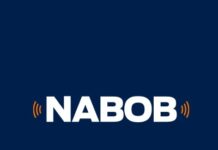
The latest Local Ad Buyers Survey from Borrell Associates highlights a pivotal moment for radio in the advertising landscape. While radio scraps with other media for revenue, it has some of the highest-regarded sellers in the sphere – with one glaring caveat.
CEO Gordon Borrell joined his team and Downtown Partnership of Colorado Springs Marketing Director Carrie Simison to reveal the results of the survey, conducted between September and early November, which gathered responses from over 1,100 direct ad buyers and local agencies.
When asked about the perceived effectiveness of different platforms, AM/FM radio holds a mid-tier position, with 34% of advertisers finding it highly effective. This positions radio as competitive with website ads (34%) and slightly ahead of cable TV (32%). Streaming audio finished tied with newspapers at 18%. Agencies had a comparable view, with AM/FM effectiveness at 38%. However, agencies had a much higher perception of streaming audio, with 48% of those surveyed believing the medium is highly effective.
In 2024, Borrell reports radio saw an average spending of $18,100 per buyer, with 8% of advertisers expecting to increase their radio budgets in 2025 and another 8% planning to cut back. This equilibrium suggests that radio has maintained its value for a specific segment of advertisers, but it has not achieved the same projected growth momentum seen in digital formats like social media (+22%) and SEM (+19%) or experiential strategies like events and sponsorships (+12%).
The webinar noted that streaming video and over-the-top platform advertising is beginning to “swim downstream” to smaller advertisers, signaling potential growth areas for radio companies willing to integrate video into their sales campaigns. 21% of advertisers are buying digital ads from radio companies.
Borrell also highlighted radio’s distinct strengths, particularly how advertisers rate the marketing expertise of radio sales representatives the highest. 36% of advertisers describe radio sellers as having “exceptional marketing expertise,” ahead of other media, including broadcast TV at 30% and newspapers and cable at 25%.
So what set radio apart? Radio reps are valued primarily for their local market knowledge, with 60% of respondents stating that radio reps have significantly or somewhat greater capabilities in this area compared to those from other media companies. Access to local audience reach ranks second, with 53% of agencies recognizing this as a strength for radio sales teams.
Cost-effectiveness was highlighted by 47% of respondents, showcasing radio’s appeal as a medium that delivers solid returns without excessive spending. However, the perception of innovative ideas (40%) and transparency (24%) among radio reps is notably lower.
Radio should be concerned about perceptions around digital sales, though. While 19% of advertisers rate radio AEs as having “exceptional digital expertise,” tying with cable, 28% of advertisers who perceive sales reps as having no digital expertise at all.
Spending trends showed cautious optimism for 2025 and beyond. While 36% of advertisers expressed optimism about economic conditions improving over the next six months, only 14% indicated plans to increase spending, with the majority opting to maintain or reduce their advertising budgets.










Thank you
The good sellers are leaving the radio business in droves, going into other industries where they can actually make MORE money by selling more, as opposed to many radio companies which have systems in place where it is entirely possible and likely that you will make less money by selling more.
Lol. You took this as a positive…that “exceptional” sellers in radio are ranked as mediocre, though better than sellers in competing *legacy* media? You also failed to mention that these scores are down 5% over 2021, which should say that sellers in general are getting worse.
The other key metric was that 17% of radio sellers were judged as having “NO marketing expertise”. So if your cluster has 12 full-time sellers, two of them have likely been judged as absolutely incompetent. But I guess in radioland that’s a win.